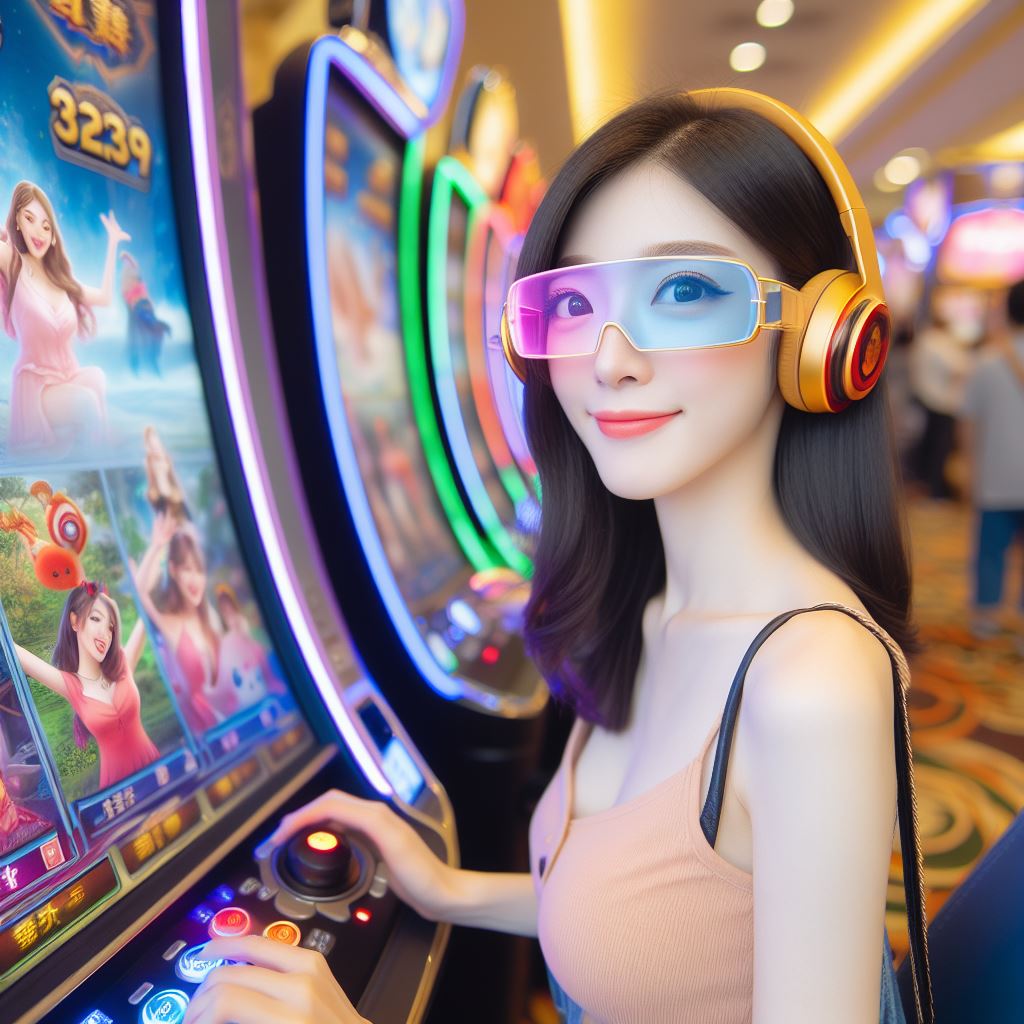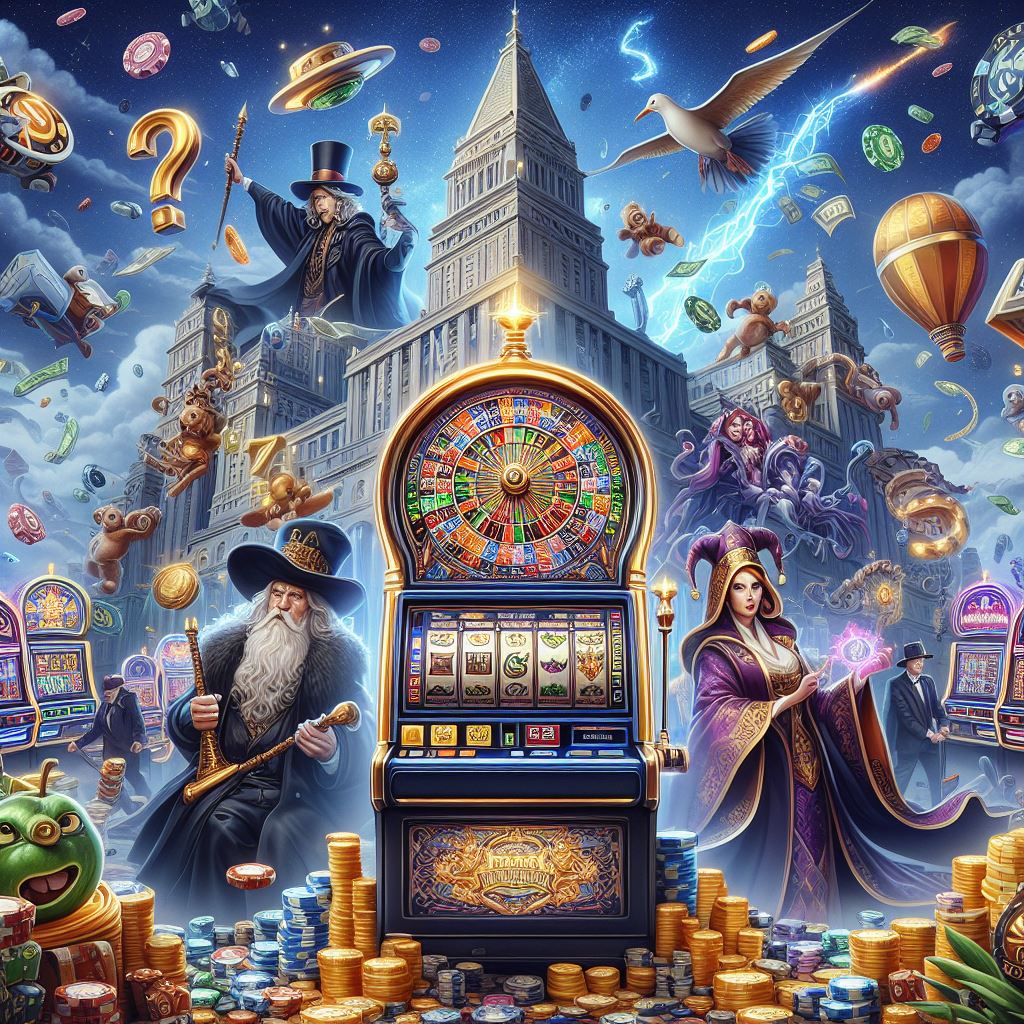Tips Memilih Game Slot merupakan judul pada artikel kami hari ini. kami ucapkan selamat datang di steveheimoff.com Revealing the World of Gambling Through Words, Strategies, and Real Stories pembahasan menarik tentang Slot online adalah salah satu bentuk hiburan paling populer di dunia perjudian. Dengan ribuan permainan yang tersedia, memilih game slot yang tepat bisa menjadi …
Continue reading Tips Memilih Game Slot: Puncak Kemenangan Internasional
Pesona Indah Slot Online: Dari Grafik Hingga Bonus
Pesona Indah Slot Online merupakan artikel kami pada hari ini. kami ucapkan selamat datang di steveheimoff.com. Revealing the World of Gambling Through Words, Strategies, and Real Stories. Pembahasan menarik tentang Slot online telah menjadi salah satu permainan paling digemari di dunia perjudian digital. Keberhasilan ini bukan hanya karena kemudahan akses dan potensi kemenangan. Tetapi juga …
Continue reading Pesona Indah Slot Online: Dari Grafik Hingga Bonus
Slot Online Gratis Terbaik: Kelebihan dan Kekurangannya
Slot Online Gratis Terbaik merupakan judul pada artikel kami hari ini. Kami ucapkan selamat datang di steveheimoff.com Revealing the World of Gambling Through Words, Strategies, and Real Stories pembahasan menarik tentang Slot online gratis telah menjadi salah satu pilihan utama bagi pemain yang ingin merasakan sensasi bermain slot tanpa harus mempertaruhkan uang sungguhan. Mereka menawarkan …
Continue reading Slot Online Gratis Terbaik: Kelebihan dan Kekurangannya
Evolusi Cahaya Slot Online: Pencapaian hingga Virtual Reality
Evolusi Cahaya Slot Online merupakan judul pada artikel kami hari ini. Kami ucapkan selamat datang di steveheimoff.com. Revealing the World of Gambling Through Words, Strategies, and Real Stories. Industri perjudian online telah mengalami transformasi yang signifikan sejak awal kemunculannya. Dengan slot online menjadi salah satu segmen yang paling dinamis dan inovatif. Artikel ini akan menelusuri …
Continue reading Evolusi Cahaya Slot Online: Pencapaian hingga Virtual Reality
Menjelajahi Kedalaman Misterius dengan Slot Ocean Lord
Pengantar Menjelajahi Kedalaman Misterius judul pada artikel kami hari ini, kami ucapkan selamat datang di steveheimoff.com. Revealing the World of Gambling Through Words, Strategies, and Real Stories Slot Ocean Lord, yang tersedia di IDNSLOT, menawarkan petualangan bawah laut yang mendebarkan di mana pemain dapat menjelajahi misteri-misteri laut sambil mencari harta karun tersembunyi. Game ini menggabungkan …
Continue reading Menjelajahi Kedalaman Misterius dengan Slot Ocean Lord
Menaklukkan Mesin Slot Online: Panduan Praktis untuk Pemula
Menaklukkan Mesin Slot Online merupakan judul pada artikel kami hari ini. kami ucapkan selamat datang di steveheimoff.com Revealing the World of Gambling Through Words, Strategies, and Real Stories Bermain mesin slot online bisa menjadi pengalaman yang menyenangkan dan mengasyikkan, tetapi bagi pemula, bisa terasa menakutkan. Dengan begitu banyak variasi game dan strategi yang berbeda, bisa …
Continue reading Menaklukkan Mesin Slot Online: Panduan Praktis untuk Pemula
Tren Slot Online: Dapat Kita Harapkan
Tren Slot Online merupakan judul artikel kami hari ini. kami ucapkan selamat datang di steveheimoff.com. Revealing the World of Gambling Through Words, Strategies, and Real Stories pembahasn menarik tentang perkembangan teknologi yang terus menerus, industri slot online telah melihat banyak inovasi dan perubahan yang signifikan. Tren terkini dalam slot online tidak hanya meningkatkan cara permainan …
Continue reading Tren Slot Online: Dapat Kita Harapkan
Perkembangan Terbaru Slot Online: dalam Fitur Bonus
Perkembangan Terbaru Slot Online merupakan judul pada artikel kami hari ini. kami ucapkan selamat datang di steveheimoff.com Revealing the World of Gambling Through Words, Strategies, and Real Stories pembahasan menarik tentang Slot online telah berkembang jauh melebihi versi awal mereka. Kini, dengan kemajuan teknologi dan keinginan pengembang untuk memikat pemain dengan pengalaman yang semakin interaktif …
Continue reading Perkembangan Terbaru Slot Online: dalam Fitur Bonus
Perkembangan Teknologi Casino Online: Dari Live Dealer
Perkembangan Teknologi Casino Online merupakan judul pada artikel kami hari ini. kami ucapkan selamat datang di steveheimoff.com. Revealing the World of Gambling Through Words, Strategies, and Real Stories. Pembahasn menarik tentang Perkembangan teknologi telah merevolusi industri casino online. Memperkenalkan fitur-fitur baru yang menarik dan meningkatkan pengalaman berjudi dari waktu ke waktu. Dari pengenalan live dealer …
Continue reading Perkembangan Teknologi Casino Online: Dari Live Dealer
Keajaiban Teknologi Slot Terbaik: Evolusi Grafis dalam Slot Online
Keajaiban Teknologi Slot Terbaik merupakan judul pada artikel kami hari ini. Kami ucapkan Slamat datang di steveheimoff.com Revealing the World of Gambling Through Words, Strategies, and Real Stories pembahasan menarik tentang Dalam beberapa tahun terakhir. Industri perjudian online telah menyaksikan perkembangan teknologi yang luar biasa. khususnya dalam hal grafis dan animasi dalam slot online. Mesin …
Continue reading Keajaiban Teknologi Slot Terbaik: Evolusi Grafis dalam Slot Online








